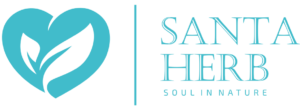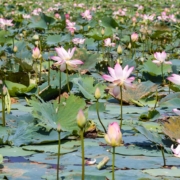CHINESE SKULLCAP EXTRACT BAICALIN
Chinese skullcap extract baicalin, Scutellaria baicalensis, a native plant of China and Korea, is known as the “baikal skullcap.”
Chinese medicine has utilize its root to treat psychiatric conditions. Chemicals in Baikal skullcap may reduce puffiness and halt tumour growth.
For HIV/AIDS, kidney infections, pelvic inflammation, and sores or swelling, patients use Baikal skullcap for their treatment. Additionally, it is use to treat other conditions like nervous tension, hysteria, scarlet fever, headache, irritability, red eyes, and flushed skin.
IS BAICALIN THE SAME AS SKULLCAP?
People refer to Baicalin by a variety of different names. These include the Hooded Willow Herb, Chinese Skullcap, Huang Qin, and Scutellaria baicalensis (the scientific name). Mad Bark and Baikal are less popular names.
WHAT IS THE BENEFIT OF BAICALIN?
Baicalin effectively prevents a number of neurodegenerative diseases, including AD, PD, and cerebral ischemia, according to numerous studies. It does this by reducing oxidative stress, inhibiting excitotoxicity, promoting neurogenesis, reducing apoptosis, and blocking the production of inflammatory cytokines.
USAGES & Effectiveness
- Infections, affecting the lungs, such as bronchiolitis, which causes inflammation of the tiny airways. The combination of Baikal skullcap, forsythia, and honeysuckle may help youngsters with bronchiolitis brought on by a respiratory syncytial virus (RSV) infection feel better more quickly, according to emerging research.
- Arthritis: According to certain studies, a specific pharmaceutical treatment called Limbrel, produced by Primus Pharmaceuticals, which contains flavocoxid, a compound derived from catechu and the Baikal skullcap, may be helpful for treating knee arthritis. However, there isn’t enough high-quality research available to determine how well this product would perform.
- Psoriasis: According to one study, an ointment including Baikal skullcap, phellodendron, and isatis helped an 8-year-old kid with psoriasis.
- Infections : Of the kidneys, stomach, and pelvis, Hepatitis, haemorrhoids, HIV/AIDS, nervous tension, seizures, hay fever, lumps or sores, Fever, Red eyes, a headache, clean face, tongue bitterness, among other issues.
IS DAILY USE OF SKULLCAP SAFE?
There haven’t been any current, well-controlled human investigations on American skullcap. American skullcap dosages should be kept to the amount recommend on the packaging. Standard dosagesm, 1–2 g , three times a day.
WHAT FOODS INCLUDE BAICALEIN?
The most prevalent polyphenolic substances in nature are bioflavonoids, which include quercetin, baicalein, apigenin, luteolin, and myricetin. They are present in all types of plants as well as wine, tea, citrus fruits, dark chocolate, and herbs.
ARE THERE ANY DRUG INTERACTIONS WITH SKULLCAP?
SKULLCAP and sedative drugs (CNS depressants) interact. A skullcap may lead to slower breathing and tiredness . A family of medicines known as sedatives can also cause sleepiness and respiratory problems. Combining skullcap with sedative drugs may result in difficulty breathing and/or excessive tiredness.
WHAT HERBAL BLENDS SHOULDN’T INCLUDE WITH SKULLCAP?
Scullcap shouldn’t be taken with other herbal or health products that can make you sleepy. Included in this are 5-HTP (5-hydroxytryptophan), calamus, California poppies, catnip, gotu kola, Jamaican dogwood, kava, melatonin, others.
SKULLCAP DOES IT INCREASES BLOOD PRESSURE?
Blood pressure may be lower by baikal skullcap. Combining Baikal skullcap with blood pressure-lowering drugs may result in dangerously low blood pressure.
Learn more about our products click here


